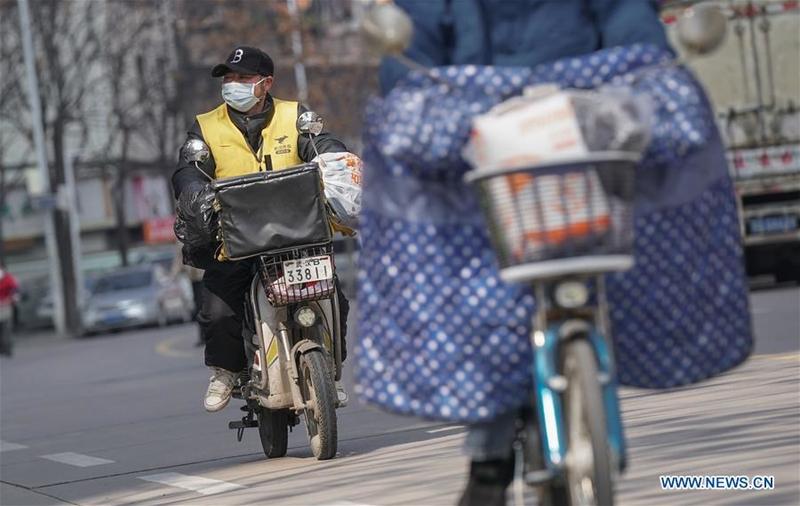 A deliveryman delivers goods in Jiang'an district of Wuhan, central China's Hubei province, Feb 9, 2020. (CHENG MIN / XINHUA)
A deliveryman delivers goods in Jiang'an district of Wuhan, central China's Hubei province, Feb 9, 2020. (CHENG MIN / XINHUA)
The city government of Wuhan, capital of Hubei province, has launched a microprogram on Chinese social media that enables residents to report their health conditions online and get help from local health centers in case of fever or suspected novel coronavirus infection.
The WeChat microprogram, called Wuhan Micro Neighborhood, allows residents to join an online version of their community where they can report matters of concern, make suggestions to the community management committee and enjoy other public services.
The WeChat microprogram, called Wuhan Micro Neighborhood, enables residents to report their health conditions online and get help from local health centers
Wuhan government official Liu Yong said it was developed in 2018 as an online platfor to better provide public services. After the novel coronavirus outbreak in the city, the microprogram was redesigned to meet residents' demand for health services.
ALSO READ: Coronavirus: China launches close contact detection app
After residents fill in their personal information, including their name, contact details and home address, the program helps match them with their communities and volunteers.
Residents can use the program to submit their health conditions in case of fever or other symptoms and the information will automatically be sent to the community's health center for initial screening. Community volunteers will then contact the residents according to the gravity of their situation.
If the residents have high fever, the volunteers will arrange for cars to take them to designated hospitals for further diagnosis.
Those with suspected symptoms, including low fever or symptoms related to cold, will be told to stay at home for further observation. The volunteers will contact them regularly to monitor any changes in their conditions, such as body temperature, and visit their homes to disinfect their front doors and corridors leading to them.
The volunteers will also be able to track the progress of residents' hospital treatment.
READ MORE: Virtual clinics being set up to help tackle contagion
Liu said the volunteers include government officials, members of the Communist Party of China, staff of the local property management company, security guards and people from other fields of work.
He said there had not been enough volunteers in the early stage of the epidemic to meet local residents' great demand for health services, but the pressure has been significantly relieved as a result of mobilization efforts and people's needs are now being met.


